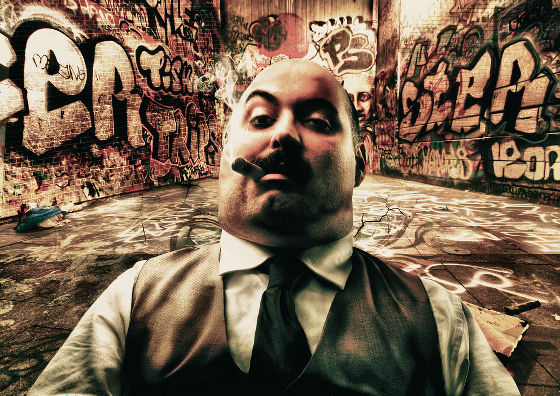Seven bad habits where managerial positions such as CEOs and company officials cause dramatic failures

ByKelly B.
CEOs and executives who are at the top of the company are questioned for their ability to manage the company,A checklist that summarizes important tasks that the CEO should do every weekAlthough it is open to the public, contrary to what the failing managers take behaviors is summarized into seven items "The Seven Habits of Spectacularly Unsuccessful Executives"is.
The Seven Habits of Spectacularly Unsuccessful Executives - Forbes
http://www.forbes.com/sites/ericjackson/2012/01/02/the-seven-habits-of-spectacularly-unsuccessful-executives/
◆ 01: I consider myself or my company to be a ruler

ByProyecto Garaje ?.
The company should not try to be a ruler in the environment or market that is in place. Unlike successful people, leaders who fail in control do not notice that they are dependent on the environment. They overestimate the events that they can control and underestimate the opportunity of success. Also, such a leader considers himself to be a film director at a company, but as long as the leader is a film director, people at the company exist only to make a personal vision come true .
◆ 02: Do not clearly distinguish your own interests and corporate profits at the company

ByAmbert
Management who makes a mistake is not a "company" to raise a company, but as an extension of one's own. Such a way of thinking raises the mentality of "private empire" and they will start using the company for their ambitions. Especially, thinking that excellent CEOs etc. have brought a lot of money to the company, consumption is a modest one compared with it, and even if it is wasteful, we tend to use company money.Tyco InternationalIt was CEO ofDennis KozlowskiButHuge embezzlementIt is thought that this logic is caused by being guilty of it.
◆ 03: I think I have all the answers

ByPhill.d
The image of management ability we admire in the last few decades is "to make several decisions, deal with multiple important aspects at the same time, judge the circumstances that caused people to be embarrassed for a couple of days" This image problem is that it is deception. A leader who always has a clear and determined attitude loses the opportunity to understand details as it tends to instantly solve problems. Also, these leaders need to feel that they have all the answers, so they will not try to learn new things. A leader who thinks that he has all the answers has no other viewpoint of things.
◆ 04: Rude human beings who do not support them mercilessly

ByMichele Plunkett
CEOs who believe that injecting their beliefs into their vision is a task is also a task to make employees accept it. And as a result of truncating objections and different ideas, you lose the correct answer when the problem occurs. Toy manufacturer'sMattelJill Barad, former CEO of the company, created a major loss due to this failure.
◆ 05: It is a spokesman who always worries about the image of the company

ByImages_of_Money
The attention-honored managers are always exposed to the masses, but management praised by the media has a problem of making efforts for management shallow. I do not achieve something, I am satisfied with the appearance that achieves something. When the CEO is obsessed with the image, they spend almost no time on the operational details. Dennis Kozlowski from Tyco International sometimes became excessive interference to the small things concerning the media, but he had hardly supervised the company's daily work. Finally, such a CEO treats financial reporting as a tool of advertising activities, not as a company's control tool. It was broken by a huge amount of fraudulent accountsEnronFormer CEO Jeffrey Skilling used this method to trick the public.
◆ 06: Underestimate obstacles and barriers

ByAlexbip
As one of the attractive aspects of my job as CEO, I may adopt my own vision. However, when you are obsessed with the vision, you tend to underestimate problems in the execution. And even when it turns out that the problem is more troublesome than expected, they tend to rush at full speed into the problem. Why does not the CEO want to admit his mistake because if you recognize that you made a mistake, their position as CEO will be compromised. It is difficult for the CEO to retreat from the wrong decision because it is expected that some people say "once he is mistaken, he is not suitable for the CEO" comes out.
◆ 07: I cling to the way I succeeded in the past

ByRoy Sinai
Many CEOs who fail dramatically slow down the company by returning to "absolutely sure way". Instead of thinking about a stable business model and considering the range of choices that fit the new circumstances, we will do things that have brought them success in the past, or use our own career as the sole criterion. Jill Barad, former CEO of Mattel failed to promote Educational software in the same way as he sold Barbie, despite the different distribution method, but failed with prey of such customs None of the CEOs have a "decisive moment" in the career that has made significant decisions and policy choices a remarkable success. The "decisive moment" that they became famous and led to the later work has the potential to decide the "decisive moment" of the company no matter how unrealistic it is.
Related Posts:
in Note, Posted by darkhorse_log







